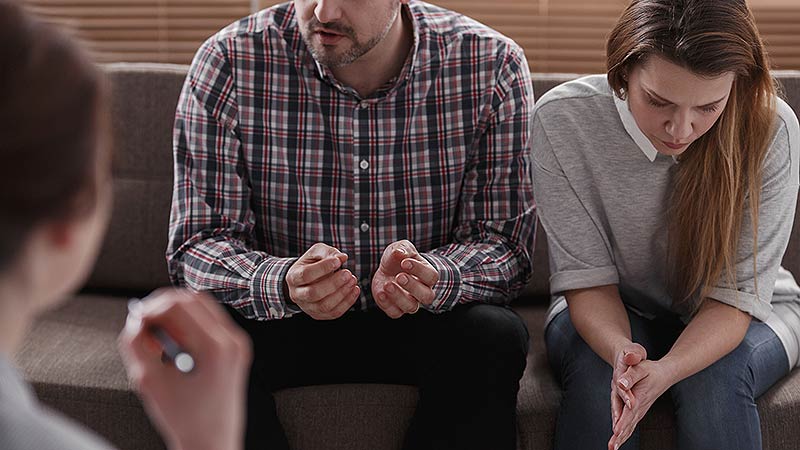

Almost everyone experiences grief with the death of someone important in their life. It can be difficult to adjust to the changes that loss brings, shaking confidence, changing routines, bringing a new, unasked-for, normality.
Bereavement is the time it takes to adjust to loss and there's no right or wrong way to deal with it. It affects everyone differently; people can feel anxious or fearful, depressed or lonely, angry or guilty, or experience all of these feelings over time.
Everyone copes with bereavement in their own way. Some people just want to deal with it on their own, some find comfort in friends or family. But many people who look for outside assistance in dealing with their bereavement , turning to groups that offer advice and support, often with people who have suffered a similar bereavement.
Following a bereavement, people find external support in a variety of ways.
Bereavement is a period of adjustment, learning to live without a loved one while holding on to their memory. Professional bereavement counselling (therapies based on talking to a trained counsellor) can help people through bereavement. Most GPs can give advice on the availability of counsellors locally. You can also search for bereavement counsellors in your area on the Counselling Directory.
Unfortunately, NHS waiting lists for counselling can be lengthy, and private counselling can be expensive. Some people are also nervous about the one-to-one nature of counselling.
Bereavement support groups can offer an accessible, affordable alternative, with the added benefit of introducing you to people with shared experiences.
There are many types of bereavement support groups, some dealing with specific types of bereavement, others simply serving a local area. Groups can focus on types of bereavement such as: relationships, Sibling Support help people cope with the loss of a brother or sister; Age, Widowed and Young support bereaved spouses under 50; or cause of death, The Loss Foundation provide cancer bereavement support.
The Good Grief Trust features a search on its website that allows you to search for support groups in your local area, but also to filter results according to who you've lost, with focused searches including parents, partners and siblings.
Nationally, Cruse Bereavement Care and Cruse Bereavement Care Scotland run a network of local branches that can offer support locally. Their national websites link off to local branch websites that supply information on one-to-one meetings, but often group meetings too. There are local phone numbers provided for detailed enquiries on the availability of support provided in your area.
Several charities also run online bereavement support forums for people who can’t travel easily or who are possibly not ready for social interaction. The Sue Ryder online community features hundreds of discussions, from staying positive to suffering from loneliness. Mirroring the bereavement support groups dedicated to specific relationships, MacMillan Cancer Support runs an online community specifically for widows and widowers to share their experiences of loss.
Bereavement support groups aren't for everyone; some people aren't comfortable sharing strong emotions in a group setting. And even people who want to try a support group can find that the group they've chosen to go to isn't right for them.
Bereaved people can have negative experiences of support groups for a variety of reasons, from feeling overwhelmed by the feelings being discussed to simply not getting along with the people, or even an individual, in the group.
If you don’t have a positive experience of a support group, it's not your fault. It just means that group isn't right for you and you should keep trying to find a support group that is better suited to you.
Find a funeral director near you: